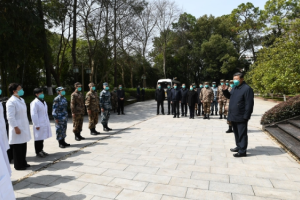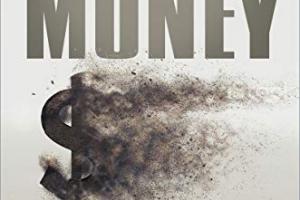Pulse: Global
Medicine in the Age of Pandemics: why our innovation system for new drug discovery is failing and how to fix it
Covid-19 is our wake-up call. Deadly pandemics are expected to keep growing in the future and our innovation system for life-saving drug development is ill equipped to deal with it. Here is why and how to fix it.
China’s painful gains from Covid-19 crisis
The ongoing Covid-19 crisis can probably be seen as a “black swan” not only for China but also the whole world. It is largely unpredictable but with severe consequences.
There is no doubt that China has suffered the most from this crisis economically, socially and politically. However, it is highly debatable whether China or the Communist Party is approaching an inflection point of possible breakup or imminent revolution.
China Sneezes & the World Holds Its Breath - EconVue Spotlight
The outbreak of the 2019 novel coronavirus is so potentially impactful that we are devoting this entire edition to the epidemic, to an attempt to gauge its seriousness. Some stories are so big that it is hard to get your arms around them and this one definitely fits that category. Social media wasn't a factor during the 2003 SARS epidemic. The Chinese economy was a much smaller percentage of global GDP, and travel to and from China was far less common. So a simple comparison to SARS is not enough.
Japanese Corporate Governance: A Response to Marsha Vande Berg
This is a response to Marsha's piece here.
Review of Hostile Money: Currencies in Conflict
“The purposes of money are constant, the way it operates varies hugely” says Paul Wilson at the outset – and few authors have illustrated this as interestingly as he does. Impressively erudite, he never lets his command of detail hold up the story, so that the reader is swept up in the stormy history of money’s role in some of the greatest social, political and military conflicts from ancient Rome to the cyber warfare of the 21st century.
The Power of Money: How Ideas about Money Shaped the Modern World
Forrest Capie, Professor Emeritus of Economic History, Cass Business School and author of the modern History of the Bank of England writes:
“Robert Pringle has written a book on money that is different from any other.”
He “draws on a long life in the worlds of money, banking, and central banking and on his wide-ranging interests beyond economics and the social sciences to history and the arts to reflect on the strange relationship money and society have on and to each other.”
How Ideas about Money Shaped the Modern World: The Power of Money
Sorry to have been absent for so long. Actually I haven’t been bone idle. At least, not all the time, though I did manage to stow away on a couple of long cruises. But even then, surfing the ocean waves in my 40,000 ton dinghy, I’ve been thinking about that funny old subject – yes, my favourite, money. From a different angle – the arts and sciences, history, literature, faith and illusion. And the result is – another book! Here is the beast:
https://www.palgrave.com/us/book/9783030258931
IFF Remarks on Deepening China and EU Economic and Financial Cooperation
The title of this session is leadership dialogue and the focus is “deepening China and EU economic and financial cooperation” in what this forum is calling the new global context. I’d like to use my time to look briefly at two dynamics that are affecting the evolution of this China/EU cooperation and then conclude with a comment about the importance of political leadership for quality outcomes as well as for a more peaceful world order.


 by
by 

 by
by 
 by
by 
 by
by 
 by
by 


 by
by 